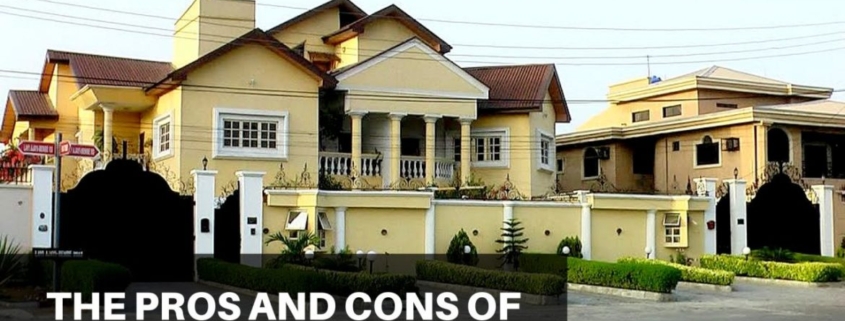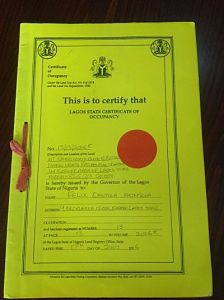Real Estate Secrets Every Young Nigerians Should Know
Real Estate Secrets Every Young Nigerians Should Know – The Finer Wealth Series, a real estate investment and wealth initiative launched by Fine and Country in 2015, aims to enlighten, encourage and equip more female investors get onto the property ladder individually and collectively to leverage the power of numbers.
This theme at this year’s edition which held on the 26th of May, 2017 at the Clear Essence California Spa and Wellness Resort was “BUILDING BLOCKS: Understanding the Fundamentals of Real Estate Investments”. It focused on engaging and enlightening younger female investors and their families with practical knowledge on investing in residential property.
We are pleased to feature below an account from one of the female guests, Joy Ehonwa a lagos based writer and blogger.
I’m not wealthy yet, not by a long shot. Editors don’t earn much, and writers are paid even less, so when a client I have great respect for invited me to a real estate investment seminar last week, I wondered why.
Perhaps she has seen into my future and I’m about to come into money! After all, investing in real estate is for rich, financially free people, isn’t it?
I gladly went, eager to learn something I could use in the not-so-near future.
It turns out I was wrong. Real estate isn’t just for the rich and established! Real estate is for me, a young woman in her 30s trying to build a career and raise a family. Real estate is for you, too. And we can start now.
The event, which held on Friday May 26th, was an introductory seminar, simply encouraging women to be bold enough to “consider a field” as the Proverbs 31 woman did, even if you’re not ready to buy the field just yet.
As I listened to seasoned professionals – Abigail Aneke, former United Bank for Africa (UBA) ED, Subu Giwa-Amu, MD/CEO FBN Mortgage, and the host Udo Okonjo, CEO of Fine & Country – share their real estate investment stories, my mentality underwent a major overhaul. MAJOR.
I cannot possibly share every single thing I learnt at this edition of Fine & Country International’s Finer Wealth Series – it would take 5 articles to do that – but here are just a few priceless nuggets:
1. The Starting Point For Anyone Who Wants To Invest In Real Estate Is Considering It And You Don’t Need Money In Your Pocket To Do That.
Being bold enough to consider it is the foundation.
2. It Is Possible To Invest In Real Estate Without Money.
Udo Okonjo told the story of how a book titled Nothing Down taught her this and changed her outlook, leading her to earn $100,000 on a single investment 18 years ago, without her putting any money down.
3. If You Would Like To Finance Your First Investment, You Can Start Saving For It Right Away.
This meant the most to me as a young person who has never invested in real estate before. Treasury bills were recommended (look this up if you’re not already familiar with it) amongst other low risk investments that can help you multiply your money. I already knew that saving towards a goal makes it easier and more enjoyable, but whereas I thought real estate investment too lofty a goal for me, I no longer think so.
4. Instead Of Thinking Affordability, Think Collaboration.
You don’t have to invest in real estate alone, or even save up for the investment all by yourself. People come together to acquire property all the time! Even if you don’t have any money now, check out this scenario: you and 9 other women save 100k every month. In a year, your group would be able to afford property worth 12 million that none of you can afford individually. And you already know that even if all you do is buy land and sit on it for a few years, it will appreciate and you’ll all be richer for it when you offload and share profits! This is what Finer Wealth Circles are about.
5. The First Step To Making Money In Real Estate Is Research.
Know your location and ask lots and lots of questions.
6. An Unsuccessful First Venture Need Not Mean Failure.
Udo Okonjo, who is an incredibly successful real estate investor, shared the story of her first investment which was a disaster. According to her, such a thing can only be termed failure when you don’t get up, unpack it, and learn from it. Understand that you will make mistakes, even when you become astute. Learn to forgive yourself.
7. When Buying Real Estate, Control Is Key.
This was the main lesson Udo Okonjo learnt from that first disaster. Invest around where you are, and make sure due de-risking has been done. If you don’t know how, invest through schemes that have done the groundwork of securing the title and dealing with the baales and other such issues that can derail you.
8. When Investing In Property, The Title Is Everything.
This is why Fine & Country settles this first, before proceeding to anything else.
9. When Starting Out In Real Estate, Start Simple.
For instance, it’s always a good idea to house people. People are crying out for affordable accommodation.
10. Know That Real Estate Is A Long-Term Play.
It’s not liquid, and it takes time to extract liquidity from it, so don’t come at it with a “make it quick” attitude.
11. Even If You Can’t Do Anything Else For Starters, Buy Some Land.
Land is a great option because you can’t go wrong once you’ve secured it. Unlike developed property which you need to maintain, land increases in value on its own as time passes. You can even decide to lease it to a farmer, or rent it to a telecommunications company. Udo Okonjo quoted Mark Twain: “Buy land, they’re not making it anymore.”
I came away from the seminar feeling wealthier than I ever have, even though my account balance was exactly the same.
I may not be able to buy land right now, but I’m no longer ignoring real estate broadcast messages and ads.
The possibilities are endless if you simply open your mind to the fact that you, too, can invest in real estate. Once that can happen in your mind, it can happen in your life.
I missed the 2016 edition of the Finer Wealth Series last year (Ibukun Awosika Chairman of First Bank Plc shared her real estate investment stories, please cry with me) but I certainly don’t want to miss next year’s. Neither should you.












